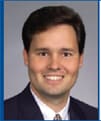Management Essentials
Questions to Ask Before Closing Out 2010
By Farrell “Toby” Tyson, MD, FACS
The end of another year is upon us. While most of us are ready to relax and enjoy the holidays, it is still important to spend some time on comprehensive end-of-year planning so that our practices will hit the ground running in 2011.
Accountants usually like to come out this time of year and give a practice a general financial overview that includes profit, costs of doing business and trends. While such a summary may be wrapped in beautiful trimmings, this really isn't providing you with much information to plan for the future. More specific questions need to be asked.
Questioning the Details
Although circumstances will differ from practice to practice, the following four questions are a good starting point for analysis.
● Does the practice need any new equipment? While most practices are looking at ways to cut expenses, many are constantly replacing and upgrading equipment. The section 179 deduction on business assets has been doubled from the 2009 limit of $250,000 to $500,000 for 2010 and 2011. This allows a practice to fully depreciate the asset in a given tax year instead of doing so over several years. This may make the acquisition or merger of ophthalmology practices more feasible. A greater percentage of the practice value can be placed on the equipment and fully expensed; tangible assets are a stronger balance sheet item than goodwill.
● Does the practice need to lower its retained earnings? Many ophthalmology practices are S corporations that suffer tax consequences if there are retained profits in the business. It is best to minimize balance sheet profits by purchasing equipment, paying all pending bills or providing distributions to members.
Distributions avoid some of the payroll taxes paid by the business versus W-2 income, but must be proportionate among shareholders. If your practice is a C corporation, it may be beneficial to take profits as a dividend since they are currently taxed at 15% for the highest bracket versus 35% for personal income tax.

● Does cash flow exhibit any trends? Analyze 2010 cash flow on a monthly basis in comparison to the prior year. Certain trends will usually be illuminated, such as periods of growth, contraction and stagnation. Are these seasonal and recurring, or atypical and extraordinary?
Investigating cash flow trends can help inform decision-making on whether to invest, consolidate or hold steady. Cash flow projections are always nebulous in medicine, given the reality of constantly changing fee schedules and reimbursement rates. Conservative estimates are always the best to deal with, as they leave buffer room if the sky should fall.
● What are your corporate goals for the next year? Goal setting is best performed with participation from staff to allow “buy in” and bring more ideas to the table. Corporate goal setting requires good fiscal budgeting, which is usually absent in medical practices. How can an administrator make “cuts” if necessary if he doesn't have a realistic budget to start from?
Assessment of staff is also crucial to achieve the desired goals — it doesn't matter how well formulated your goals are if you have the wrong team in place.
Truth or Dare
It is important to sit down with your management team and “dare” them with possible scenarios that may arise. This allows for both owners and management to confront harsh truths that could surface. Consider issues like the Medicare cuts, increase in staff insurance premiums or loss of a provider. These topics bring to light the reality of possible staffing reorganization or cuts, the limits of employer benefits and the ability to stay profitable.
Year-end planning is truly unique to every practice and needs to be driven by the practice, not your accountant. One doesn't just drop the car off at the mechanic and expect them to read your mind — you know how it performs better than anyone.
Good administers will work with their doctors to determine what the practice's needs are and what is important. In addition, appropriate questions need to be formulated so practices can uncover aspects of their finances they hadn't realized. Through good preparation, comprehensive end-of-year planning can be very productive, not only as a cost saver, but also as a practice builder. OM

| Farrell C. Tyson, MD, FACS, is a refractive cataract/glaucoma eye surgeon at the Cape Coral Eye Center in Florida. He may be reached at tysonfc@hotmail.com. |








